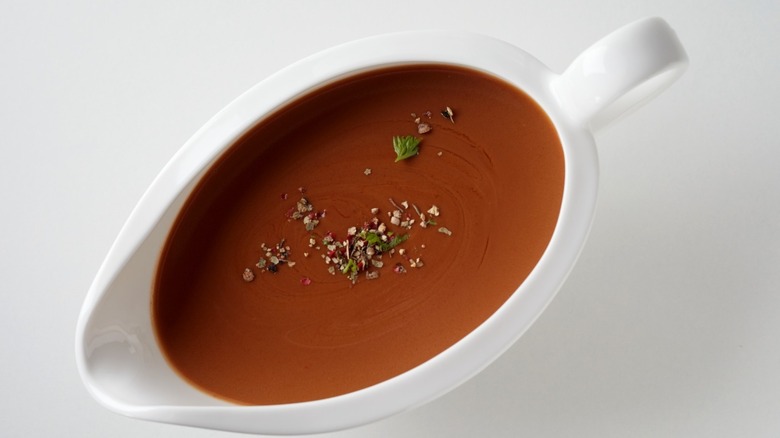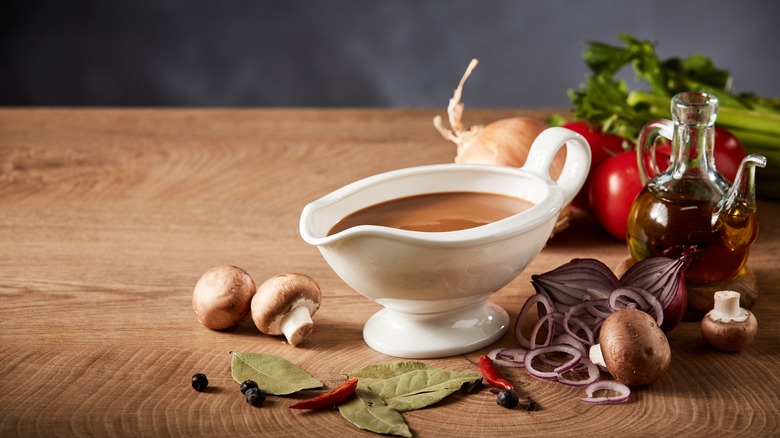What To Do If Your Gravy Is Too Thick
Whether you are whipping up a classic spread for the holidays or looking for an accompaniment to your weekday meal, there are situations like Thanksgiving where gravy is an absolute must. It does not take many ingredients to create, and the salty umami combination creates a mouthwatering addition to most spreads.
While the gravy-making process is fairly straightforward, there are a few common gravy mistakes that you want to try avoiding. You definitely do not want a lumpy gravy on your hands, so be sure to have a whisk handy to keep your bubbling mixture smooth and even. You also do not want to be impatient. Gravy does take some time to come together and thicken properly. If you do not allow it to cook long enough, the results will be thinner than desired (via MasterClass).
If your gravy does end up too thin, it is easy enough to add a bit more flour to achieve ideal consistency. As an alternative, Serious Eats also recommends letting it simmer a bit longer to reduce the excess water and thicken the gravy. What about situations, though, where you have perhaps added a bit too much flour or reduced it too much, and you have ended up with gravy that is too thick? After all, it is meant to be poured, not scooped, atop your meal.
Before you go pouring in more cups of water, creating a mess, there is a way to save that too-thick batch of gravy.
Reach for stock, not water
Though your goal is to thin out the density of gravy that is way too thick, one thing you definitely do not want to lessen is the flavor. You cannot serve gravy with an unappealing gummy texture, so you might be tempted to just add water in an attempt to make it thinner. However, resist that urge — while it will make your gravy less thick in consistency, it will also dilute the taste. As KitchenSeer suggests, you will actually want to add broth in order to get your recipe where you want it to be.
In doing so, you want to aim to match the broth with your meal — for example, if you are planning to ladle that gravy onto some poultry, you may want to reach for chicken broth, whereas a gravy paired with roast beef might do best with some added beef broth. Ultimately, it is a matter of preference, and, of course, a matter of what you have on hand to use. Using broth rather than water will go a long way in fixing your gravy, per KitchenSeer.
Another important thing to note is that gravy does tend to thicken as it cools. Therefore, you may want to aim to make it just a bit thinner than the desired final product while it is on the stove; it should thicken up slightly over time.

